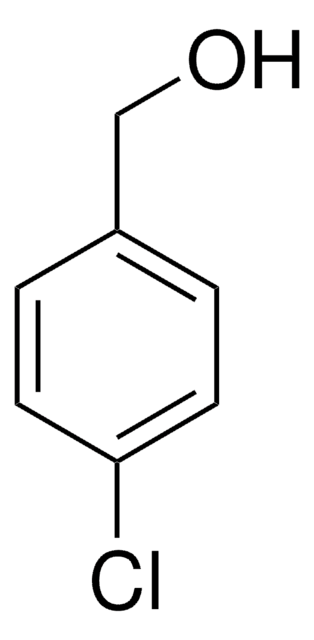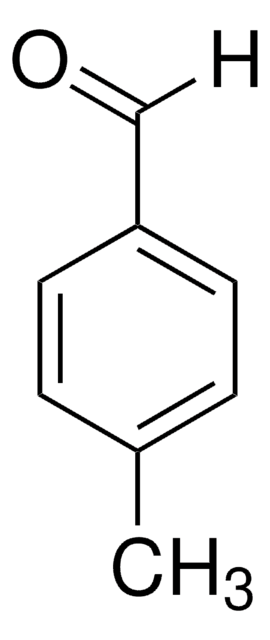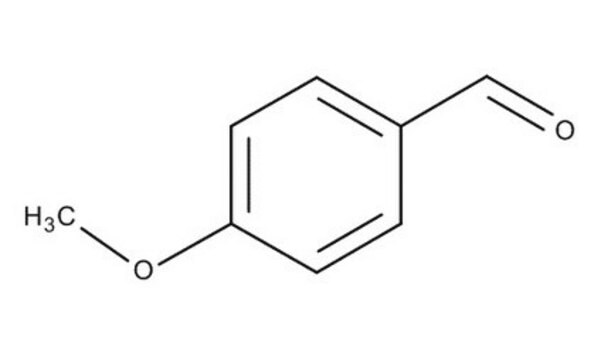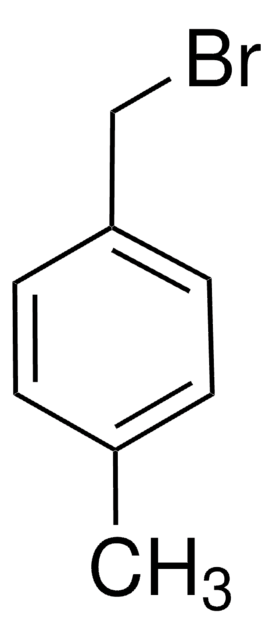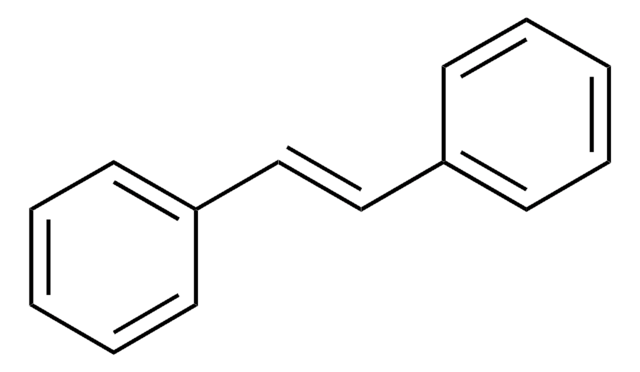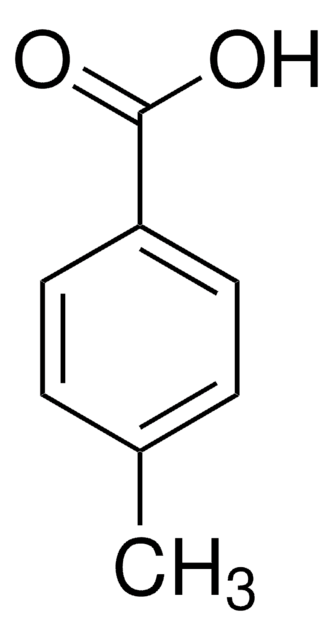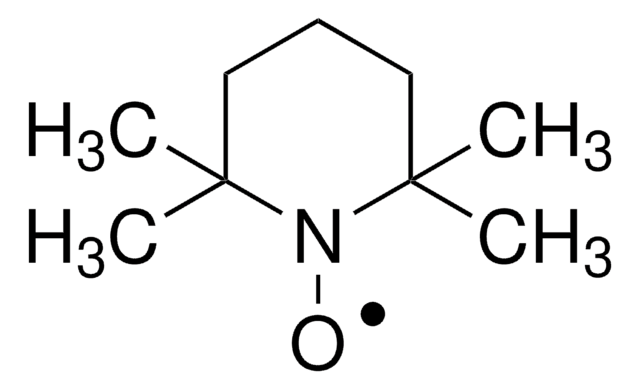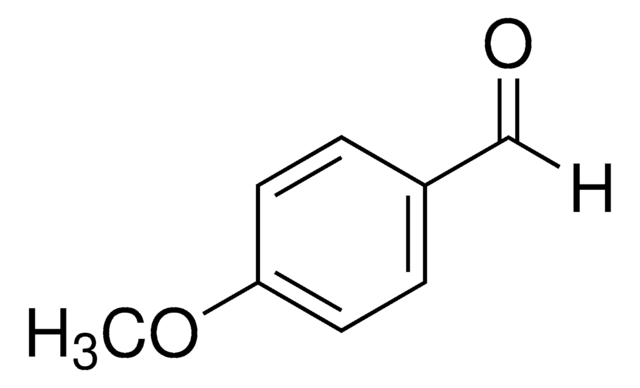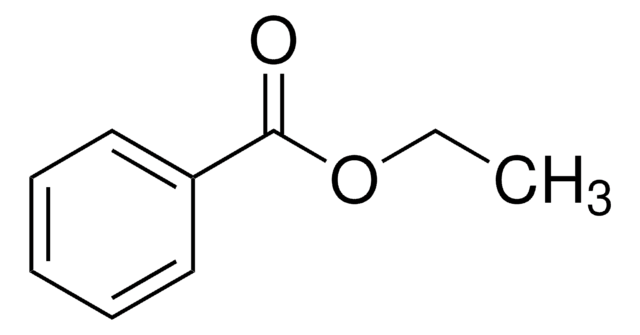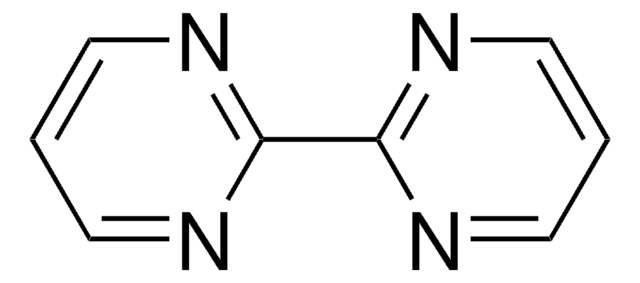Wichtige Dokumente
127809
4-Methylbenzylalkohol
98%
Synonym(e):
(4-Methylphenyl)methanol, (4-Tolyl)methanol, 4-Methylbenzenemethanol, p-Methylbenzyl alcohol, p-Tolualcohol, p-Tolylcarbinol, p-Tolylmethanol
About This Item
Empfohlene Produkte
Qualitätsniveau
Assay
98%
bp
217 °C (lit.)
mp (Schmelzpunkt)
59-61 °C (lit.)
Funktionelle Gruppe
hydroxyl
SMILES String
Cc1ccc(CO)cc1
InChI
1S/C8H10O/c1-7-2-4-8(6-9)5-3-7/h2-5,9H,6H2,1H3
InChIKey
KMTDMTZBNYGUNX-UHFFFAOYSA-N
Verwandte Kategorien
Allgemeine Beschreibung
Anwendung
Signalwort
Warning
H-Sätze
Gefahreneinstufungen
Eye Irrit. 2
Lagerklassenschlüssel
11 - Combustible Solids
WGK
WGK 2
Flammpunkt (°F)
Not applicable
Flammpunkt (°C)
Not applicable
Persönliche Schutzausrüstung
dust mask type N95 (US), Eyeshields, Faceshields, Gloves, type P3 (EN 143) respirator cartridges
Hier finden Sie alle aktuellen Versionen:
Besitzen Sie dieses Produkt bereits?
In der Dokumentenbibliothek finden Sie die Dokumentation zu den Produkten, die Sie kürzlich erworben haben.
Kunden haben sich ebenfalls angesehen
Global Trade Item Number
| SKU | GTIN |
|---|---|
| 127809-100G | 4061832879840 |
| 127809-25G | 4061838725196 |
| 127809-5G | 4061838725202 |
Unser Team von Wissenschaftlern verfügt über Erfahrung in allen Forschungsbereichen einschließlich Life Science, Materialwissenschaften, chemischer Synthese, Chromatographie, Analytik und vielen mehr..
Setzen Sie sich mit dem technischen Dienst in Verbindung.
